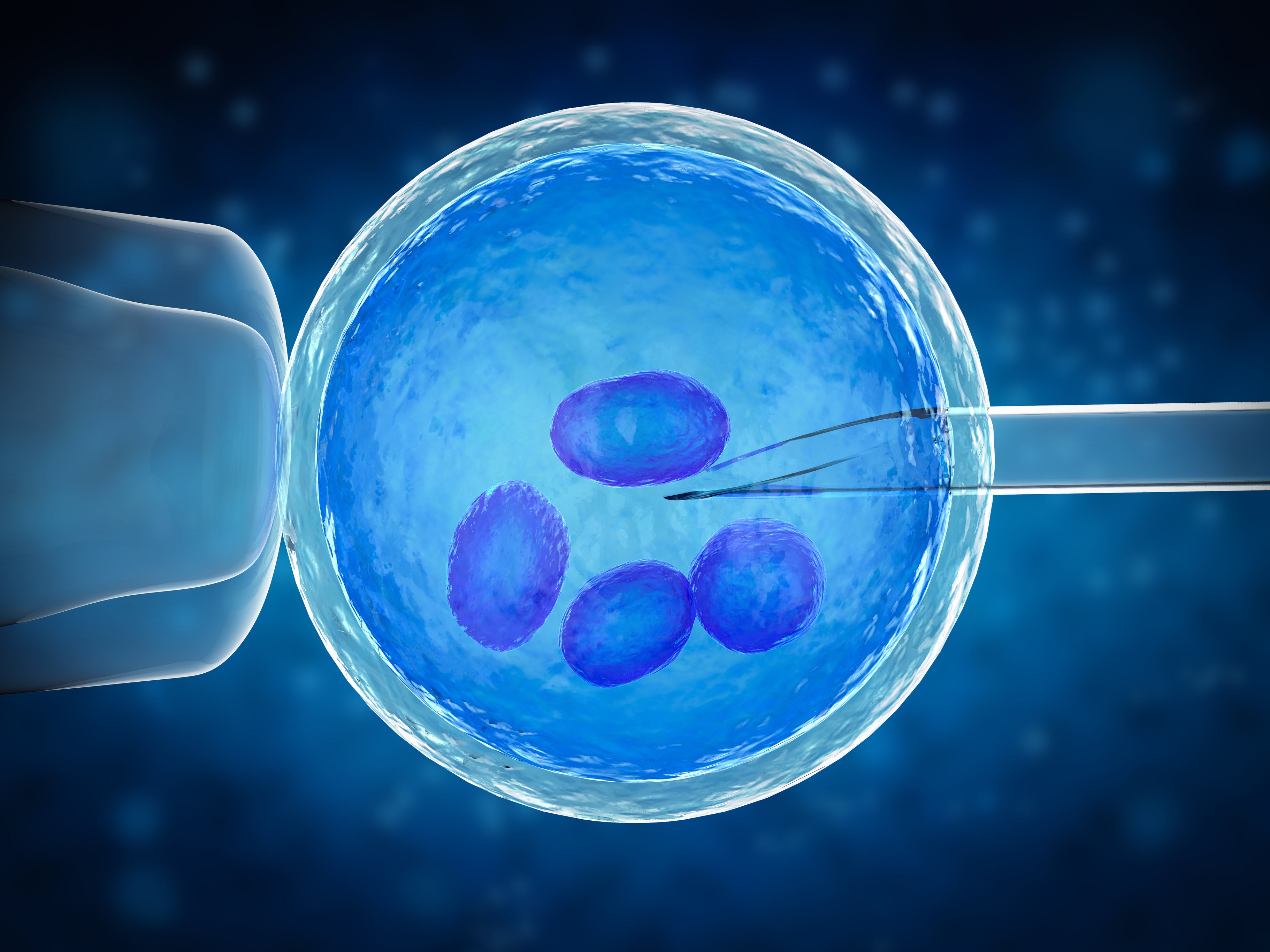Expert explains what you need to know about freezing your eggs
From the cost to the benefits, here’s everything you need to know about egg freezing

Your support helps us to tell the story
From reproductive rights to climate change to Big Tech, The Independent is on the ground when the story is developing. Whether it's investigating the financials of Elon Musk's pro-Trump PAC or producing our latest documentary, 'The A Word', which shines a light on the American women fighting for reproductive rights, we know how important it is to parse out the facts from the messaging.
At such a critical moment in US history, we need reporters on the ground. Your donation allows us to keep sending journalists to speak to both sides of the story.
The Independent is trusted by Americans across the entire political spectrum. And unlike many other quality news outlets, we choose not to lock Americans out of our reporting and analysis with paywalls. We believe quality journalism should be available to everyone, paid for by those who can afford it.
Your support makes all the difference.The decision to freeze your eggs is a deeply personal one. Some women who want children are forced to due to being diagnosed with an illness, such as cancer, while others do it out of preference, so that they can try and have a baby later on in life.
Whatever the reason, women opting to freeze their eggs has seen a sharp increase over the past decade, with enquiries about egg freezing rising by 50 per cent in the UK in summer 2020,compared to the year before.
Last month, a couple in Oregon, US, welcomed twins from embryos that were frozen on 22 April 1992, making these the longest-ever frozen embryos to result in live birth.
These embryos came from a 50-year-old man and a 34-year-old egg donor, and were placed into mother Rachel Ridgeway three decades later and she became pregnant with the twins.
How does egg freezing work?
Gynaecologist, fertility expert and co-founder of Fertility Plus, Dr Amit Shah, says that the egg freezing consists of four stages:
- Investigation, assessment and consent
- Ovarian stimulation
- Egg collection
- Egg preparation and freezing
“The assessment is an initial consultation with your consultant and a series of tests that include an ovarian reserve blood test and an ultrasound scan,” Shah tells The Independent.
“Following the results of these tests an egg freezing treatment plan is given alongside the consideration of the fertility drugs that will be used and the associated fixed price package.”
He adds that patients are also asked to look over and sign a selection of consent forms set by the regulatory body, HFEA, which detail terms such as how long you wish the eggs to be stored for and what should happen to the eggs in event of your death.
Once the details have been finalised, the egg-freezing process begins with a short period of pre-treatment, which sees self-administered ovarian stimulation injections. This usually lasts for a period of two weeks before the eggs are retrieved in a day surgery which is usually scheduled for the morning.
“The procedure is performed trans-vaginally, a fine needle is attached to a scan probe which is passed through the ovary,” Shah explains.

He adds that when a folicle is removed this is checked for an egg, and if an egg is not found, the process will be repeated a few times.
“Every follicle may not contain an egg and the egg to follicle ratio, the number of eggs which may come from each follicle may vary. In some cases the follicles may not yield any eggs or may provide abnormal ones. After the egg collection we are told how many eggs are obtained. There is no way of predicting the number of eggs or their quality until the egg collection,” he explains.
“This is followed by the laboratory process under which the eggs are frozen. It is essential that the entire process is carried out under expert care.”
Eggs can be frozen for a maximum of 10 years to start, while women who are freezing their eggs for medical reasons are offered the choice to extend it to 55 years if needed.
Why should you freeze your eggs and what are the benefits?
Shah explains that egg-freezing was initially used to help women who were undergoing cancer treatment that could affect fertility as chemotherapy can stop ovaries from releasing eggs and estrogen.
“However, more recently, healthy women are also thinking of preserving their fertility, although this time for social reasons,” Shah adds.
“The social egg-freezing trend is slowly increasing, as many women delay having a baby until much later in life to pursue other options first. Data from OECD suggests that approximately 20 per cent of 40 to 44-year-olds were childless in 2010 compared to 14 per cent in 1995. This trend is expected to continue.
“This delay in starting for a family coupled with the natural decline in fertility where the greatest decline occurs after 35 years and intensifies after 39 has meant that egg freezing provides women with a choice to delay their fertility for the future,” Shah says.
However, he emphasises that egg freezing “does not guarantee a baby”. “Therefore all patients must balance the decision of trying to preserve their fertility by freezing their eggs or trying for a family in the near future,” he continues.
As for making the decision on whether or not to freeze your eggs, he advises: “The best way to know is to gather as much information as possible. Have a consult with experts and then decide if this is the right path for you.”
Who is eligible to freeze their eggs on the NHS and how much does it cost privately?
Only those with a medical condition affecting their fertility, such as cancer, are eligible to freeze their eggs on the NHS.
To freeze your eggs via private healthcare, Shah says it costs between £6,000 to £6,500 in total for one treatment cycle.
What is the best age to freeze your eggs?
Manchester Fertility says the younger you are when you freeze your eggs, the better. It states: “This is because the quality and quantity of your eggs decline as you get older, usually in your thirties. Therefore, for the best results, we recommend freezing occurs during your twenties or early thirties. However, anytime under 35 will give you higher success rates than natural conception as you get older.”



Join our commenting forum
Join thought-provoking conversations, follow other Independent readers and see their replies
Comments